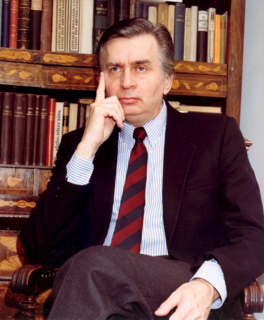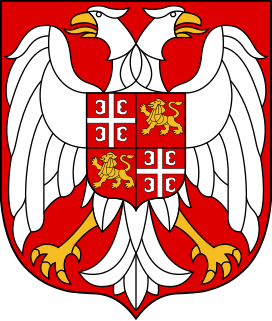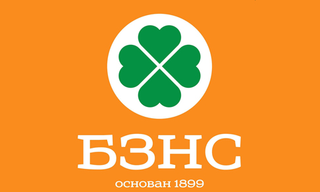
General elections were held in the Netherlands on 3 May 1994. The Labour Party emerged as the largest party, winning 37 of the 150 seats in the House of Representatives. The election resulted in significant losses for both the Labour Party and the Christian Democratic Appeal. The two liberal parties, People's Party for Freedom and Democracy and Democrats 66 made large gains, whilst two pro-elderly parties and the Socialist Party all passed the electoral threshold to win seats.
Parliamentary elections were held in Montenegro on 20 October 2002. The result was a victory for the For a European Montenegro alliance formed by the Democratic Party of Socialists of Montenegro and the Social Democratic Party of Montenegro, which won 39 of the 75 seats. It was the last parliamentary election held in Montenegro prior to independence in 2006.

Parliamentary elections were held in Macedonia on 15 September 2002. The result was a victory for the Together for Macedonia, an alliance of the Social Democratic Union of Macedonia, the Liberal Democratic Party, the Democratic Party of Turks, the Democratic League of Bosniaks, the United Party of Romas in Macedonia, the Democratic Party of Serbs, the Democratic Union of Vlachs, the Workers-Peasant Party, the Socialist Christian Party of Macedonia and the Green Party of Macedonia, which won 60 of the 120 seats in the Assembly.

The 1990 Hungarian parliamentary elections were held in Hungary on 25 March 1990, with a second round of voting taking place in all but five single member constituencies on 8 April. They were the first completely free and competitive elections to be held in the country since 1945, and only the second free elections in the country's history. The conservative, nationalist Hungarian Democratic Forum (MDF) beat the liberal and more internationalist Alliance of Free Democrats, which had spearheaded opposition to Communist rule in 1989, to become the largest party in parliament. The Hungarian Socialist Party, the former Communist party, suffered a crushing defeat, winning only 33 seats for fourth place.

Parliamentary elections were held in Bulgaria on 19 April 1997. The result was a victory for the United Democratic Forces, which won 137 of the 240 seats. Voter turnout was 62.9%. Following the election, SDS leader Ivan Kostov became Prime Minister.
Parliamentary elections were held in Bulgaria on 13 October 1991. They were the first elections held under the country's first post-communist constitution, which had been promulgated three months earlier.
Constitutional Assembly elections were held in Bulgaria on 10 June 1990, with a second round for eighteen seats on 17 June. They were the first elections held since the fall of Communism the previous winter, and the first free national elections since 1931. The elections were held to elect the 7th Grand National Assembly, tasked with adopting a new (democratic) constitution. The new electoral system was changed from 400 single-member constituencies used during the Communist era to a split system whereby half were elected in single member constituencies and half by proportional representation. The result was a victory for the Bulgarian Socialist Party, the freshly renamed Communist Party, which won 211 of the 400 seats. Voter turnout was 90.3%.

Parliamentary elections were held in Bulgaria on 18 November 1945, the country's first to feature universal suffrage for women. The Bulgarian Agrarian National Union and the Bulgarian Communist Party both won 94 seats. Voter turnout was 84.8%.
Parliamentary elections were held in the People's Socialist Republic of Albania on 12 November 1978. The Democratic Front was the only party able to contest the elections, and subsequently won all 250 seats. Voter turnout was reported to be 100%, with all but one of the country's 1,436,289 registered voters casting votes.
Parliamentary elections were held in the People's Socialist Republic of Albania on 14 November 1982. The Democratic Front was the only party able to contest the elections, and subsequently won all 250 seats. Voter turnout was reported to be 100%.
Parliamentary elections were held in the People's Socialist Republic of Albania on 1 February 1987. The Democratic Front, a mass organization of the Party of Labour of Albania, was the only political force able to contest the elections, and subsequently won all 250 seats. Voter turnout was reported to be 100%.

Parliamentary elections were held in the Federal Republic of Yugoslavia on 3 November 1996. A coalition of the Socialist Party of Serbia, the Yugoslav Left and New Democracy emerged as the largest bloc in the Federal Parliament, winning 64 of the 138 seats. Radoje Kontić, member of the Montenegrin ruling party, the Democratic Party of Socialists of Montenegro, was confirmed as Prime Minister of the Federal Republic of Yugoslavia. He was replaced, in 1998, by Momir Bulatović, leader of Socialist People's Party of Montenegro.

Parliamentary elections were held in Bulgaria on 27 June 1971, the first held under the new Zhivkov Constitution, which had been approved in a referendum held a month earlier. The Fatherland Front, dominated by the Bulgarian Communist Party, was the only organisation to contest the election; all candidate lists had to be approved by the Front. The Front nominated one candidate for each constituency. Of the 400 candidates 268 were members of the Communist Party, 100 were members of the Bulgarian Agrarian National Union and the remaining 32 were unaffiliated. Voter turnout was reportedly 99.9%.

Parliamentary elections were held in Bulgaria on 21 June 1931. The result was a victory for the Popular Bloc, an alliance of the Bulgarian Agrarian National Union (Dragiev), the Democratic Party, the National Liberal Party (Petrov) and the Radical Democratic Party, which won 151 of the 273 seats. Voter turnout was 85.2%.

Parliamentary elections were held in Bulgaria between 6 and 27 March 1938, the first after the 1934 coup. The elections were held on a non-partisan basis, with the Bulgarian Agrarian National Union and Bulgarian Communist Party banned. Pro-government candidates won a majority of seats. Voter turnout was 69.5%.

Parliamentary elections were held in Bulgaria on 24 December 1939, although voting continued in some areas into January 1940. The elections were officially held on a non-partisan basis with the Bulgarian Agrarian National Union and Bulgarian Communist Party banned, and in a process tightly controlled by Tsar Boris III, by then the real power in the country. However, candidates representing parties did contest the elections. Pro-government candidates won a majority of seats. Voter turnout was 67.2%.

Direct presidential elections were held for the first time in Bulgaria on 12 January 1992, with a second round on 19 January. The result was a victory for incumbent President Zhelyu Zhelev of the Union of Democratic Forces, who won 52.8% of the vote in the second round. Voter turnout was 75.4% in the first round and 75.9% in the second. Zhelev had originally been elected as President by the Grand National Assembly in 1990.

The National Liberal Party was a political party in Bulgaria.

The United Labour Social Democratic Party was a political party in Bulgaria.









